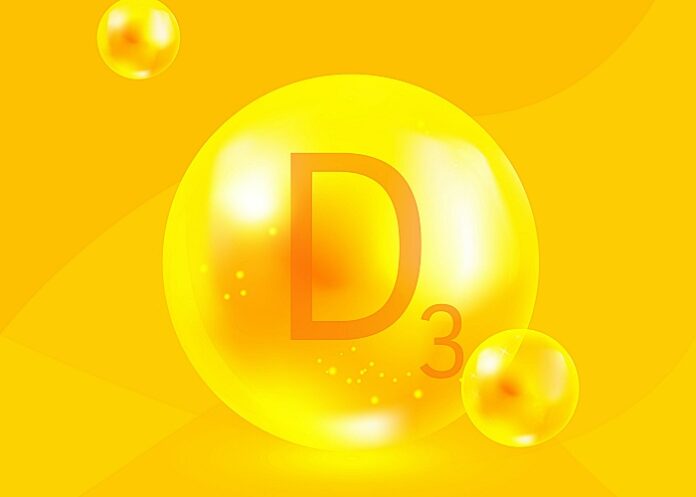Contrary to widely held views, there are significant differences between the two types of vitamin D, with D3 appearing to boost the immune system but D2 having an apparently negligible impact on human health, found a collaborative study by the Universities of Surrey and Brighton.
The researchers investigated the impact of vitamin D supplements – D2 and D3 – taken daily over a 12-week period on the activity of genes in people’s blood.
Professor Colin Smith, lead-author of the study from the University of Surrey, who began this work while at the University of Brighton, said: “We have shown that vitamin D3 appears to stimulate the type I interferon signalling system in the body, a key part of the immune system that provides a first line of defence against bacteria and viruses. Thus, a healthy vitamin D3 status may help prevent viruses and bacteria from gaining a foothold in the body.
“Our study suggests that it is important that people take a vitamin D3 supplement, or suitably fortified foods, especially in the winter months.”
Although some foods are fortified with vitamin D, like some breakfast cereals, yoghurts, and bread, few naturally contain the vitamin. Vitamin D3 is produced naturally in the skin from exposure to sunlight or artificial ultraviolet UVB light, while some plants and fungi produce vitamin D2.
Many people have insufficient levels of vitamin D3 because they live in locations where sunlight is limited in the winter, like the UK. The COVID-19 pandemic has also limited people's natural exposure to the sun due to people spending more time in their homes.
Professor Susan Lanham-New, co-author of the study and Head of the Department of Nutritional Sciences at the University of Surrey, said:
“While we found that vitamin D2 and vitamin D3 do not have the same effect on gene activity within humans, the lack of impact we found when looking at vitamin D2 means that a larger study is urgently required to clarify the differences in the effects. However, these results show that vitamin D3 should be the favoured form for fortified foods and supplements.”
Study details
Vitamins D2 and D3 Have Overlapping But Different Effects on the Human Immune System Revealed Through Analysis of the Blood Transcriptome.
Louise R. Durrant, Giselda Bucca, Andrew Hesketh, Carla Möller-Levet, Laura Tripkovic, Huihai Wu, Kathryn H. Hart, John C. Mathers, Ruan M. Elliott, Susan A. Lanham-New, Colin P. Smith.
Published in Frontiers in Immunology on 24 February 2022
Vitamin D is best known for its role in maintaining bone health and calcium homeostasis. However, it also exerts a broad range of extra-skeletal effects on cellular physiology and on the immune system.
Vitamins D2 and D3 share a high degree of structural similarity. Functional equivalence in their vitamin D-dependent effects on human physiology is usually assumed but has in fact not been well defined experimentally. In this study we seek to redress the gap in knowledge by undertaking an in-depth examination of changes in the human blood transcriptome following supplementation with physiological doses of vitamin D2 and D3.
Our work extends a previously published randomized placebo-controlled trial that recruited healthy white European and South Asian women who were given 15 µg of vitamin D2 or D3 daily over 12 weeks in wintertime in the UK (Nov-Mar) by additionally determining changes in the blood transcriptome over the intervention period using microarrays. An integrated comparison of the results defines both the effect of vitamin D3 or D2 on gene expression, and any influence of ethnic background. An important aspect of this analysis was the focus on the changes in expression from baseline to the 12-week endpoint of treatment within each individual, harnessing the longitudinal design of the study.
While overlap in the repertoire of differentially expressed genes was present in the D2 or D3-dependent effects identified, most changes were specific to either one vitamin or the other. The data also pointed to the possibility of ethnic differences in the responses. Notably, following vitamin D3 supplementation, the majority of changes in gene expression reflected a down-regulation in the activity of genes, many encoding pathways of the innate and adaptive immune systems, potentially shifting the immune system to a more tolerogenic status. Surprisingly, gene expression associated with type I and type II interferon activity, critical to the innate response to bacterial and viral infections, differed following supplementation with either vitamin D2 or vitamin D3, with only vitamin D3 having a stimulatory effect.
This study suggests that further investigation of the respective physiological roles of vitamin D2 and vitamin D3 is warranted.
See more from MedicalBrief archives:
Still no definitive answer on Vitamin D3 to treat COVID-19
Vitamin D deficiency from inadequate sunlight may increase colorectal cancer risk
Over 80% of COVID-19 patients have vitamin D deficiency — Spain hospital study
High prevalence of vitamin D deficiency in African populations
Sunlight associated with lower COVID-19 deaths — Edinburgh University

